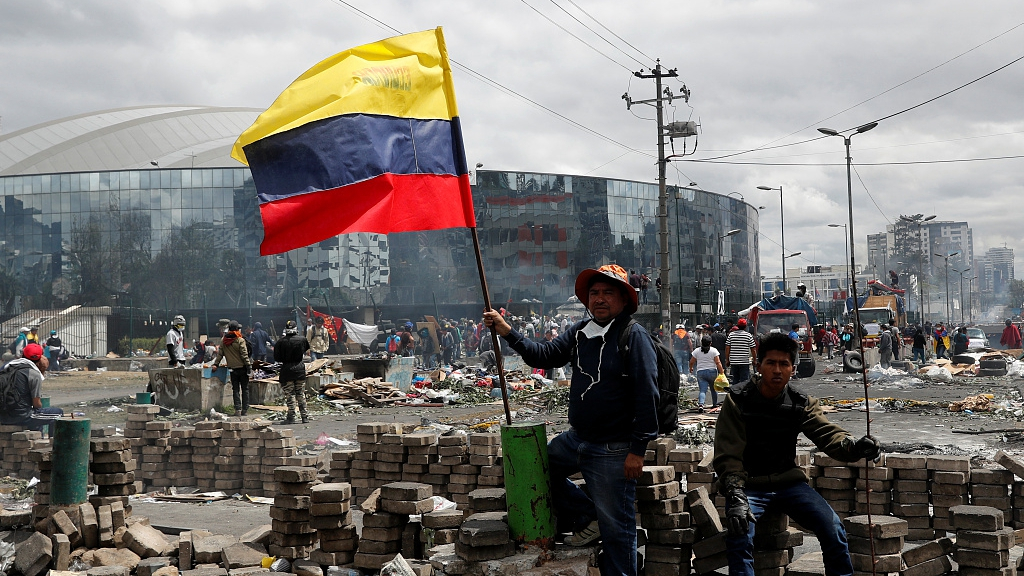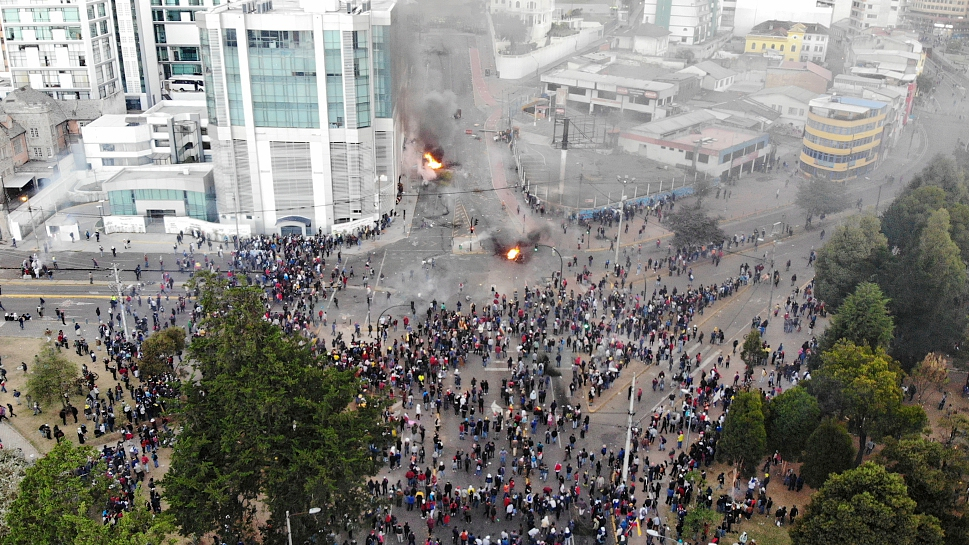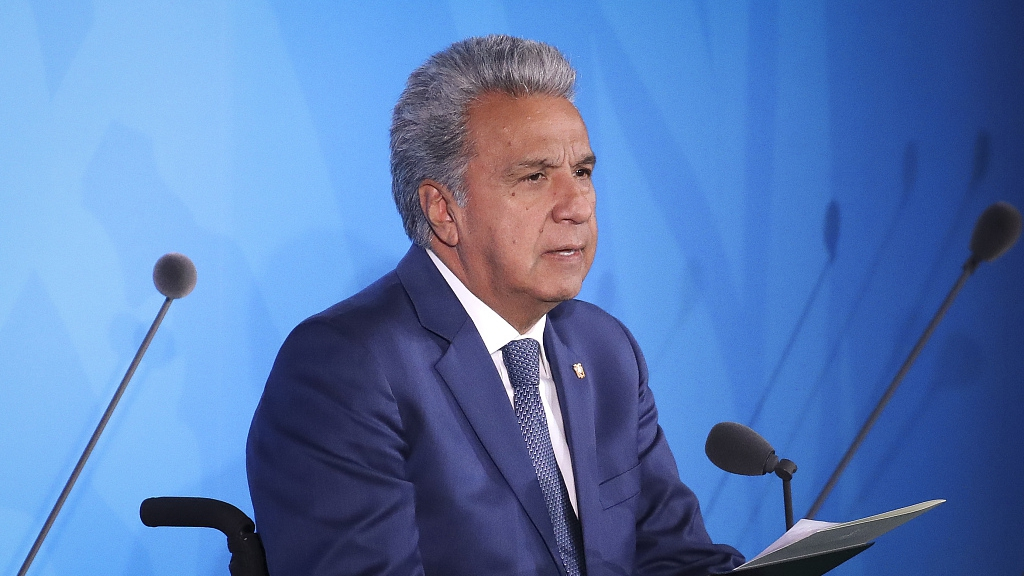00:40

The government of Ecuadorean President Lenin Moreno agreed to repeal a decree that ended fuel subsidies and will form a commission with indigenous leaders to pass a new law they can agree on, a mediator said late on Sunday.
Arnaud Peral, the representative of the United Nations in Ecuador, said that indigenous leaders agreed to call off protests against the decree.
"With this agreement, the mobilizations... across Ecuador are terminated and we commit ourselves to restoring peace in the country," said a joint statement.
The announcement was a major breakthrough in a dispute that has triggered the 12-day unrest in the capital Quito over austerity measures instituted to obtain a multibillion dollar loan from the IMF.
The rolling demonstrations have left six people dead and nearly 2,100 wounded or detained, according to authorities. Protesters on Saturday targeted a television station and a newspaper, and set fire to the comptroller general's office.

Aerial view of the National Assembly's proximities as demonstrators gather to protest against the end of subsidies to gasoline and diesel announced by President Lenin Moreno's government in Quito, Ecuador, October 9, 2019. /VCG Photo
Aerial view of the National Assembly's proximities as demonstrators gather to protest against the end of subsidies to gasoline and diesel announced by President Lenin Moreno's government in Quito, Ecuador, October 9, 2019. /VCG Photo
Moreno declared a curfew and placed the city under military control to stop the unrest. On Sunday, police dispersed a group of protesters who tried to erect a barricade with debris from Saturday's violence.
The crisis broke out in early October after Moreno ordered fuel subsidies cut as part of a deal struck by his government to obtain a 4.2 billion U.S. dollars loan from the International Monetary Fund.
Read more:
Ecuadorian president orders curfew, militarization in Quito
Moreno Sunday called for direct dialogues with indigenous groups. According to him, those behind the acts of violence and vandalism in the protests "are drug traffickers, the criminals, the Latin Kings (the largest gang group in Ecuador), and the correistas (supporters of Ecuador's former President Rafael Correa)."
Indigenous umbrella grouping CONAIE had previously rejected an offer of dialogue but reversed course Saturday and said the talks would focus on "the repeal or revision of the decree" that has left consumers paying more than double for fuel.
"Our hope is that, God willing, today we can sit down and talk and end all this," said Salvador Quishpe, a former governor of an Amazon province.

Ecuadoran President Lenin Moreno speaks at the United Nations summit on climate change in New York City, U.S., September 23, 2019. /VCG Photo
Ecuadoran President Lenin Moreno speaks at the United Nations summit on climate change in New York City, U.S., September 23, 2019. /VCG Photo
UN Secretary-General Antonio Guterres on Sunday welcomed the announcement of the start of a dialogue process, calling on all concerned to commit to inclusive and meaningful dialogue and to work in good faith toward a peaceful solution to the pressing challenges facing the country, said Stephane Dujarric, the spokesman, in a statement.
The secretary-general also called on all actors to reduce tensions, refrain from acts of violence and exercise maximum restraint, said the statement.
Ecuador's indigenous groups make up a quarter of the country's 17.3 million people. Thousands from disadvantaged communities in the Amazon and the Andes have travelled to Quito where they are spearheading demands that the subsidies continue.
(With input from Xinhua, AFP)
(Cover: Demonstrators take part in a protest against Ecuador's President Lenin Moreno's austerity measures, after Moreno imposed a military-enforced curfew in the capital Quito, Ecuador October 13, 2019. /VCG Photo)